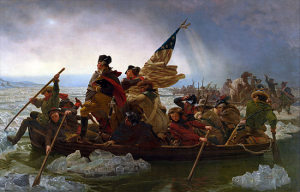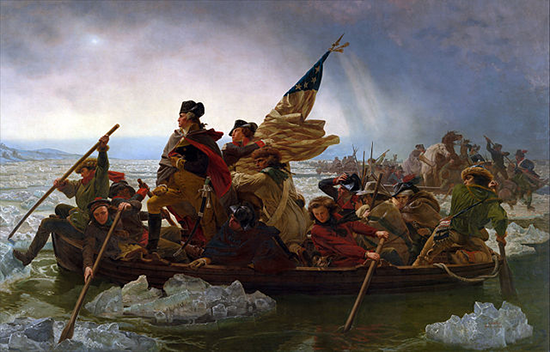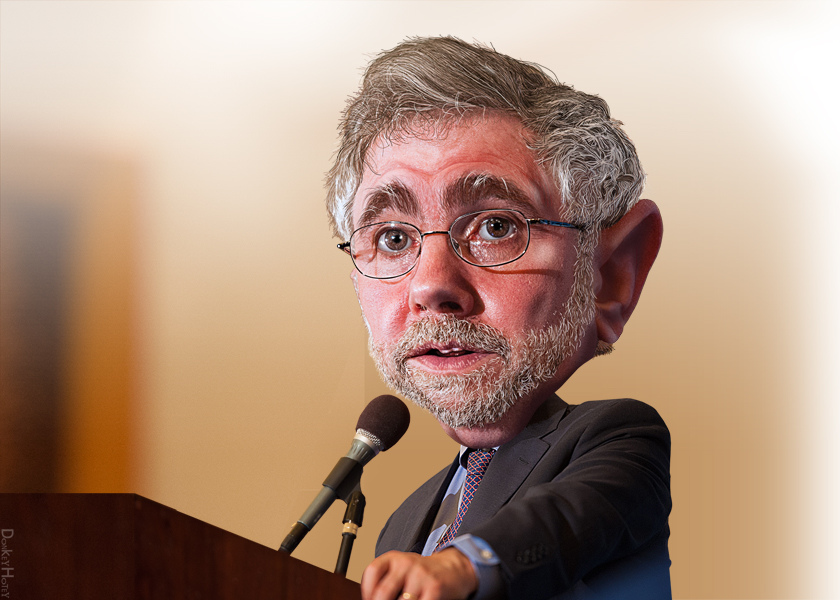Why You Should Know “The Indispensable Man”

Editor’s Note: Happy Presidents Day! The markets – and The Oxford Club’s offices – are closed, but I hope you’ll enjoy today’s essay all the same. In it, Alexander Green reflects on his favorite president and why a reproduction of a famous painting of that president hangs above his mantel.
– Christina Grieves, Senior Managing Editor
Over the holidays, some friends and neighbors came over for a dinner party.
A couple of them asked about the painting hanging over my fireplace in the living room.
It is a large oil-on-canvas replica of the famous 1851 painting by Emanuel Leutze that depicts George Washington crossing the Delaware River.

That was – you may recall – Washington’s first move in his successful surprise attack against Hessian forces on Christmas Day, 1776.
Although the original painting – like my replica – is striking, it is riddled with historical inaccuracies.
For starters, the crossing took place in the dead of night. But that wouldn’t have made a particularly inspiring work of art.
The flag shown – the original “Stars and Stripes” – did not exist at the time of his crossing.
The boats are wrong. They were larger with higher sides. The men did not bring horses. It was raining.
Washington was – in all likelihood – not standing, and certainly not in such a heroic fashion.
The Delaware at what is now called Washington Crossing is far narrower than the river in the painting. It was not filled with icy crags.
And, not incidentally, Washington and his men are heading in the wrong direction.
Chuckling at these artistic liberties, a guest asked why I chose that particular painting.
That is a story I’m only too happy to tell.
Washington was one of Virginia’s wealthiest men. Yet few risked more to defy tyranny.
When the revolutionary leaders pledged their lives, their fortunes and their sacred honor, these were more than just fine-sounding words. It was treason.
The founders knew that if the king’s soldiers caught them, they would be hanged.
Yet Washington left his comfortable, aristocratic life and led a ragtag army of ill-trained, poorly clothed, underfed soldiers against the most powerful army in the world – and won our independence.
That’s not the reason I own the painting, however.
Washington was unanimously elected president and served two terms. In 1787, he presided over the convention that drafted the American Constitution, the document that not only limited executive power but became a model and inspiration for free people everywhere.
Many historians regard Washington as “The Indispensable Man,” the crucial Founding Father and one of the greatest presidents ever.
But those aren’t the reasons I own the painting either.
Washington’s most astonishing act, the one that made him internationally famous, was his resignation as commander in chief after the war.
Following the signing of the peace treaty and British recognition of American independence, Washington stunned the world when he surrendered his sword to Congress and retired to his farm at Mount Vernon.
Read the stories of Julius Caesar, Alexander the Great, Napoleon and other famous generals.
Conquerors made sure they received political and material rewards commensurate with their achievements. And far from giving up the powers they possessed, they pressed on to acquire more.
Yet Washington took nothing, asked for nothing.
Thomas Jefferson was not exaggerating when he declared in 1784, “The moderation and virtue of a single character… probably prevented this revolution from being closed, as most others have been, by a subversion of that liberty it was intended to establish.”
News that Washington had voluntarily relinquished power – as he would again when he resigned the presidency without asking for so much as a pension – traveled fast.
People around the world were agog. No one was more disbelieving than King George III.
Upon hearing that Washington – having risked everything, suffered bitterly and defeated the most powerful army on earth – had turned the nation over to his countrymen and gone back to Mount Vernon, he declared, “If that is true, he’ll be the greatest man who ever lived.”
That is why his image is over my mantel.
Good investing,
Alex






